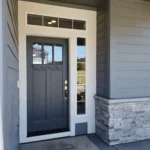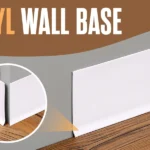Pocket doors represent an innovative solution for maximizing space by sliding discreetly into the wall, thus eliminating the need for traditional swinging doors. This design is particularly advantageous in areas with limited space, such as bathrooms or small rooms, offering a seamless and stylish entryway. In the following sections, we delve into the essentials surrounding pocket door frames, exploring types, installation techniques, design inspirations, and maintenance practices.
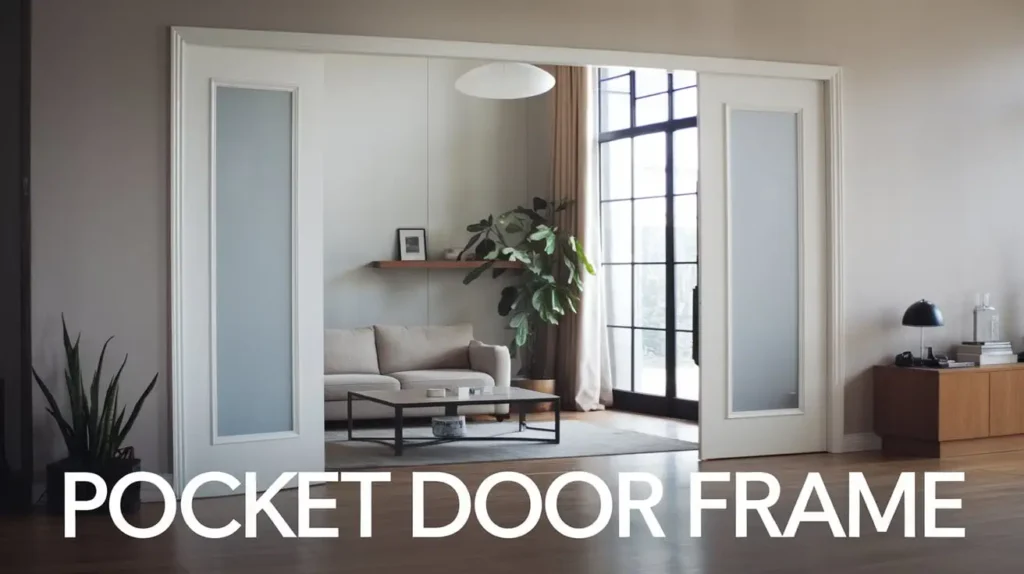
Content
Understanding Pocket Door Frames
A pocket door frame serves as the supporting structure that facilitates the sliding function of pocket doors. Unlike conventional doors that swing open, pocket doors slide into a designated space within the wall, providing a clean and unobtrusive aesthetic. This functionality has made them increasingly popular in contemporary homes where efficient use of space is a priority.
Exploring Varieties of Pocket Door Frames

Single and Double Pocket Door Options
| Frame Type | Description | Optimal Use Cases |
|---|---|---|
| Single Pocket Door Frame | Designed to accommodate one door sliding in a single direction. | Ideal for compact spaces, like bathrooms. |
| Double Pocket Door Frame | Accommodates two doors that slide toward each other. | Suitable for larger openings or expansive living areas. |
Material Selection
Pocket door frames are constructed from various materials, each offering distinct advantages:
- Wood Frames: Visually appealing, they can be stained or painted to align with the interior decor.
- Steel Frames: Renowned for durability, they are suitable for heavier doors and are frequently utilized in commercial settings.
Essential Pocket Door Hardware
Key Components
A comprehensive pocket door frame kit typically includes vital components such as:
- Tracks: Provide guidance for the door to slide.
- Rollers: Ensure smooth operation during movement.
- Stops and Bumpers: Prevent over-sliding and protect the frame.
Hardware Varieties
| Hardware Type | Features | Advantages |
|---|---|---|
| Soft-Close Mechanisms | Allow doors to close gently, preventing slamming. | Enhances safety and prolongs durability. |
| Adjustable Hardware | Can be tailored to accommodate various door sizes. | Provides flexibility in design. |
Notable brands include ECLISSE, Rocket, and Johnson Hardware, recognized for their reliability and quality
Installation Techniques for Pocket Doors

Detailed Installation Procedure
- Preparation: Gather all necessary tools and materials, and accurately measure the pocket door size (width, height, and thickness).
- Frame Construction: Build the frame using 2×4 studs for the side jambs, ensuring that the opening is square and plumb.
- Track Installation: Secure the track to the header, ensuring it is level.
- Door Hanging: Attach the rollers to the door and lift it onto the track.
Avoiding Common Pitfalls
- Improper Framing: Ensure that the frame is installed square and level to prevent operational issues.
- Neglecting Wall Thickness: Check the wall depth to guarantee that the door fits seamlessly within the pocket door frame.
Retrofitting Existing Structures
Transforming a conventional door opening into a pocket door configuration can be a rewarding DIY endeavor. This process entails removing drywall and framing a new opening, enabling pocket door installation without requiring extensive renovations.
Design Inspirations for Pocket Doors
Aesthetic Choices
A wide array of designs for pocket doors is available, including:
- Flush Designs: Doors that sit flush with the wall for a minimalist aesthetic.
- Paneled Designs: Adding texture and character to the door.
- Glass Doors: Ideal for maintaining an open feel while providing privacy.
Harmonizing with Home Decor
When selecting a pocket door frame, consider its compatibility with your overall interior design. Ensuring the door style complements your home’s aesthetic can significantly enhance visual appeal
Innovative Applications
Beyond traditional uses, pocket doors can be creatively employed:
- Room Dividers: Separating living areas without consuming floor space.
- Closet Entries: Creating hidden storage solutions.
Maintenance Guidelines for Pocket Doors
Routine Maintenance Practices
To ensure the durability of your pocket door frame, it is essential to perform regular inspections on:
- Rollers and Tracks: Keep these components clean and lubricated to maintain optimal performance.
- Door Alignment: Periodically check to ensure the door remains properly aligned within the frame.
Addressing Common Issues
Frequent challenges include:
- Door Sticking: Ensure tracks are clean and rollers are functioning correctly.
- Misalignment: If the door does not slide smoothly, realign it as necessary.
Financial Considerations
The price of a pocket door frame can vary based on materials and dimensions. On average, homeowners might expect to spend between $200 and $700 for the frame and associated hardware
Investing in a high-quality frame yields significant returns in durability and aesthetics.
Frequently Asked Questions
- What are typical pocket door sizes?
- Pocket doors generally range from 24 to 36 inches in width, with options for custom sizing available.
- Is it possible to use any door with a pocket frame?
- Most doors can be adapted for use with pocket door frames, provided they fit within the specified dimensions.
- How should one select a pocket door frame kit?
- It is essential to consider door size, frame material, and whether you prefer a single or double door setup.
Final Thoughts
Pocket door frames offer a versatile and elegant option for enhancing both compact and spacious living areas. They present a seamless solution for maximizing floor space while maintaining aesthetic integrity. Whether planning a new installation or looking to update your home decor, pocket doors provide numerous advantages that can transform your environment

Elena Mohr is a dedicated home blogger who has been blogging for over six years. She covers everything home related. Elena also loves writing posts about her travels to Europe with her husband and two children.
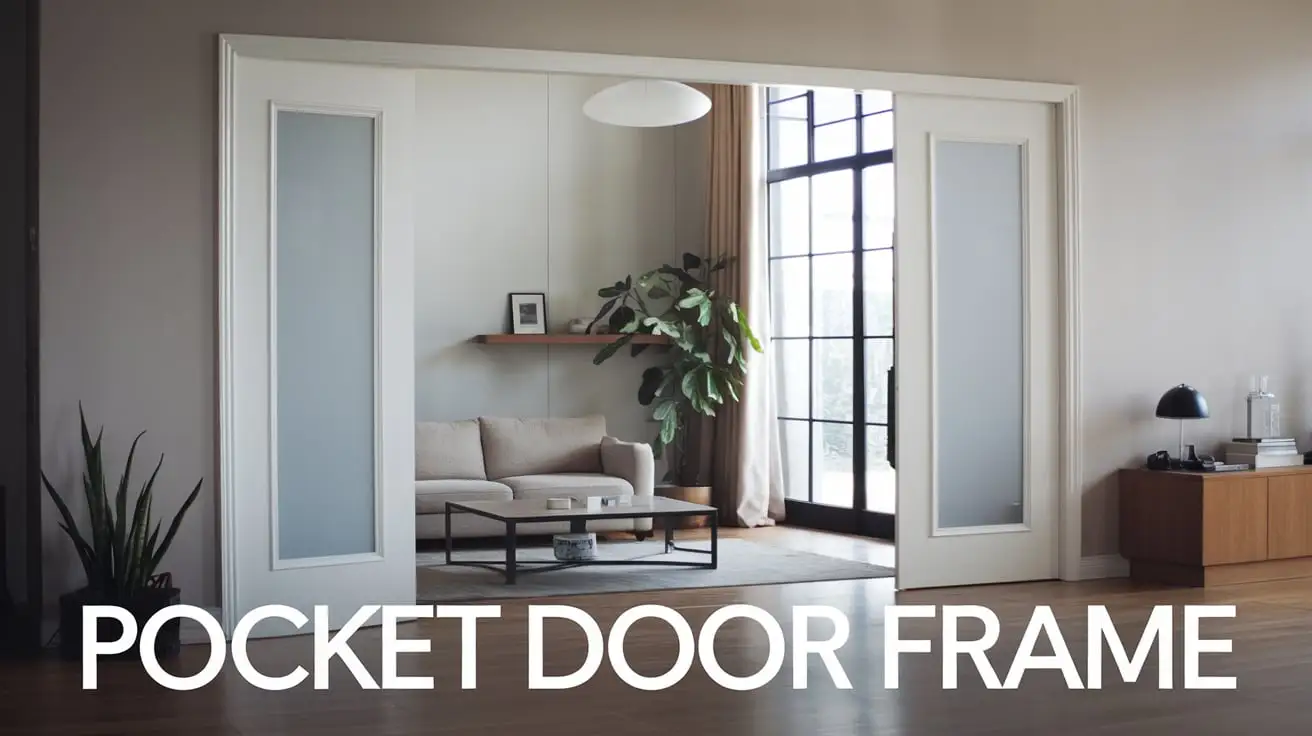
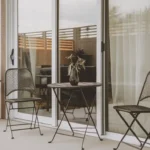
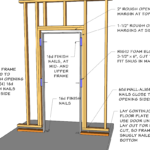


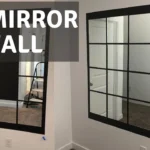



![Why Spray Foam Insulation Vaughan Homes Need: An Expert Guide [2025] Spray Foam Insulation](https://starthomeimprovement.com/wp-content/uploads/2025/09/image-150x150.png)
